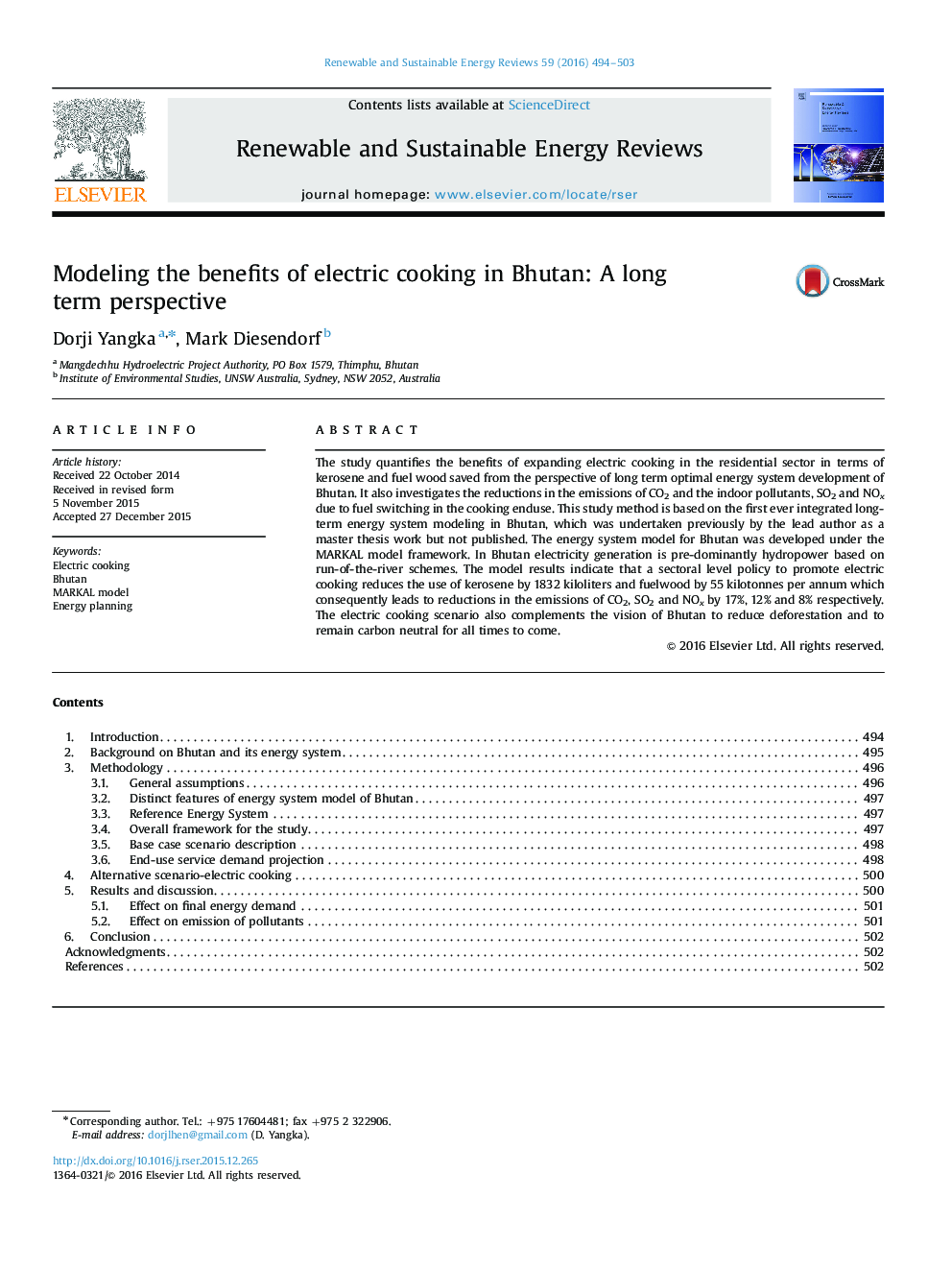| کد مقاله | کد نشریه | سال انتشار | مقاله انگلیسی | نسخه تمام متن |
|---|---|---|---|---|
| 8114063 | 1522326 | 2016 | 10 صفحه PDF | دانلود رایگان |
عنوان انگلیسی مقاله ISI
Modeling the benefits of electric cooking in Bhutan: A long term perspective
ترجمه فارسی عنوان
مدل سازی مزایای پخت و پز الکتریکی در بوتان: چشم انداز دراز مدت
دانلود مقاله + سفارش ترجمه
دانلود مقاله ISI انگلیسی
رایگان برای ایرانیان
موضوعات مرتبط
مهندسی و علوم پایه
مهندسی انرژی
انرژی های تجدید پذیر، توسعه پایدار و محیط زیست
چکیده انگلیسی
The study quantifies the benefits of expanding electric cooking in the residential sector in terms of kerosene and fuel wood saved from the perspective of long term optimal energy system development of Bhutan. It also investigates the reductions in the emissions of CO2 and the indoor pollutants, SO2 and NOx due to fuel switching in the cooking enduse. This study method is based on the first ever integrated long-term energy system modeling in Bhutan, which was undertaken previously by the lead author as a master thesis work but not published. The energy system model for Bhutan was developed under the MARKAL model framework. In Bhutan electricity generation is pre-dominantly hydropower based on run-of-the-river schemes. The model results indicate that a sectoral level policy to promote electric cooking reduces the use of kerosene by 1832 kiloliters and fuelwood by 55Â kilotonnes per annum which consequently leads to reductions in the emissions of CO2, SO2 and NOx by 17%, 12% and 8% respectively. The electric cooking scenario also complements the vision of Bhutan to reduce deforestation and to remain carbon neutral for all times to come.
ناشر
Database: Elsevier - ScienceDirect (ساینس دایرکت)
Journal: Renewable and Sustainable Energy Reviews - Volume 59, June 2016, Pages 494-503
Journal: Renewable and Sustainable Energy Reviews - Volume 59, June 2016, Pages 494-503
نویسندگان
Dorji Yangka, Mark Diesendorf,
